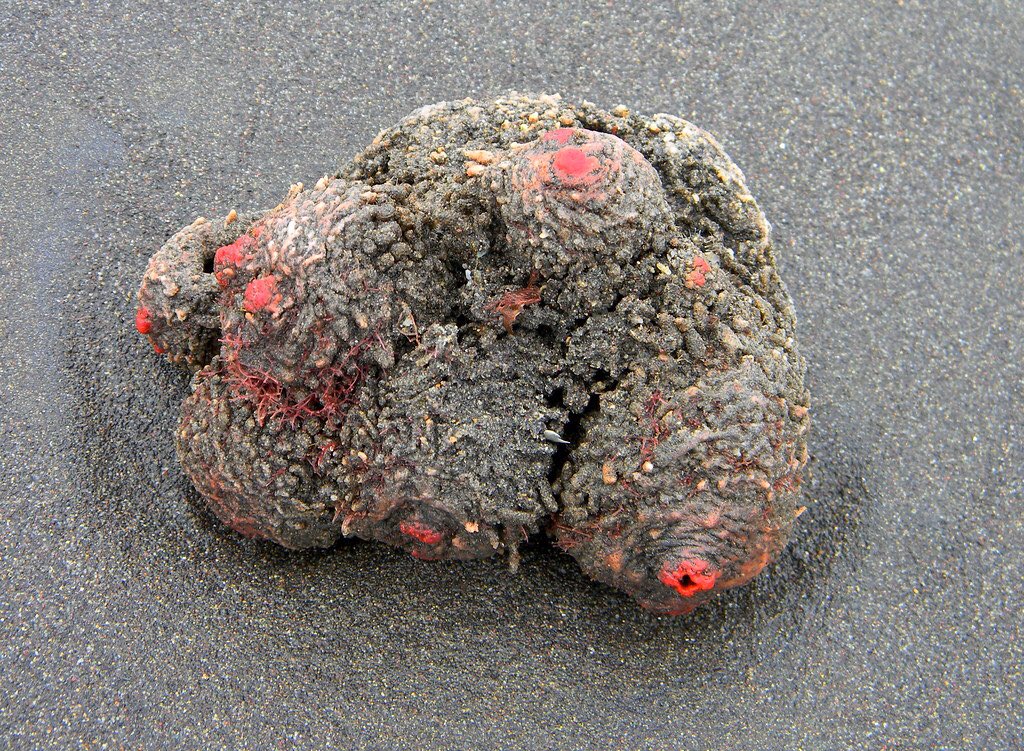You wander the beaches of Chile, enjoying the sunshine and the soothing sea breeze. You poke around tide pools, smiling at smoothed pebbles and surreal nudibranches.
#YouFindARock. It’s gritty with startling hot pink nodules.
📷 Benito Rosende
#YouFindARock. It’s gritty with startling hot pink nodules.
📷 Benito Rosende

Something is off about this rock, but you’re uncertain what’s twinging your instincts.
>
>
You poke the lump with a stick.
It squishes.
Um. Is this a rock?
>
It squishes.
Um. Is this a rock?
>
You carefully watch as you poke it with a stick again.
It squirts seawater at you.
This is not a rock. You found a...blob? A blob that is very good at disguising itself as sandstone.
>
It squirts seawater at you.
This is not a rock. You found a...blob? A blob that is very good at disguising itself as sandstone.
>
You pluck up the squishy, squirting not-rock and gently toss it into deeper water. You lick your fingers curiously as you back away, marveling at the bitter-soapy flavour of high vanadium concentrations.
“Ahh, Pyura chilensi?” a passing local enquires. “Very delicious.”
“Ahh, Pyura chilensi?” a passing local enquires. “Very delicious.”
You make a note of the creature’s name, uncertain if you can bring yourself to order kin of your temporary friend for an afternoon snack.
You congratulate yourself on your caution, affirming once again that diving in tongue-first is a hazardous attitude
You congratulate yourself on your caution, affirming once again that diving in tongue-first is a hazardous attitude
https://twitter.com/GeoFieldBot/status/1279663346267152386
You wander away, rockless.
At least, for now...
At least, for now...
https://twitter.com/mikamckinnon/status/1251631025819545600
• • •
Missing some Tweet in this thread? You can try to
force a refresh





